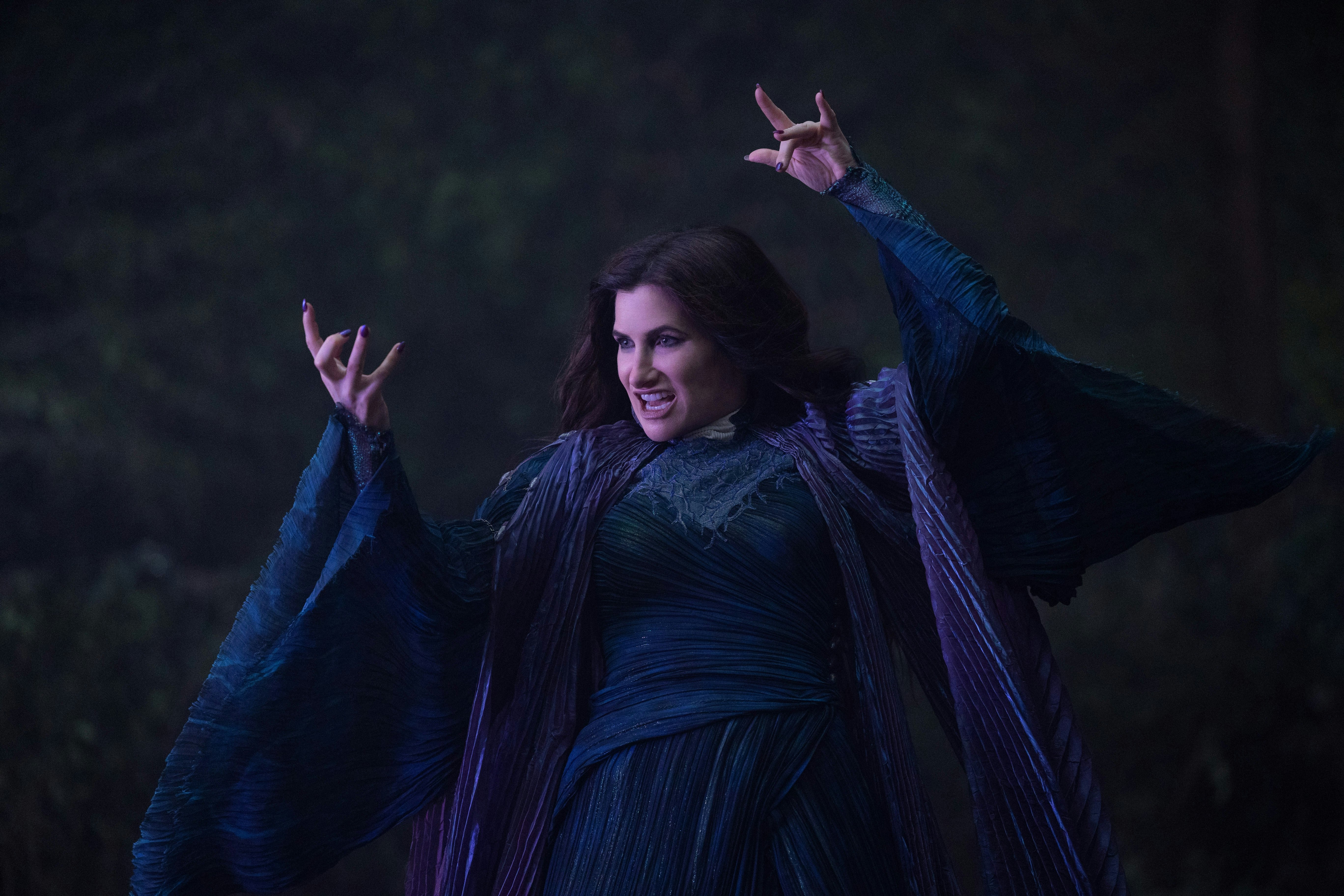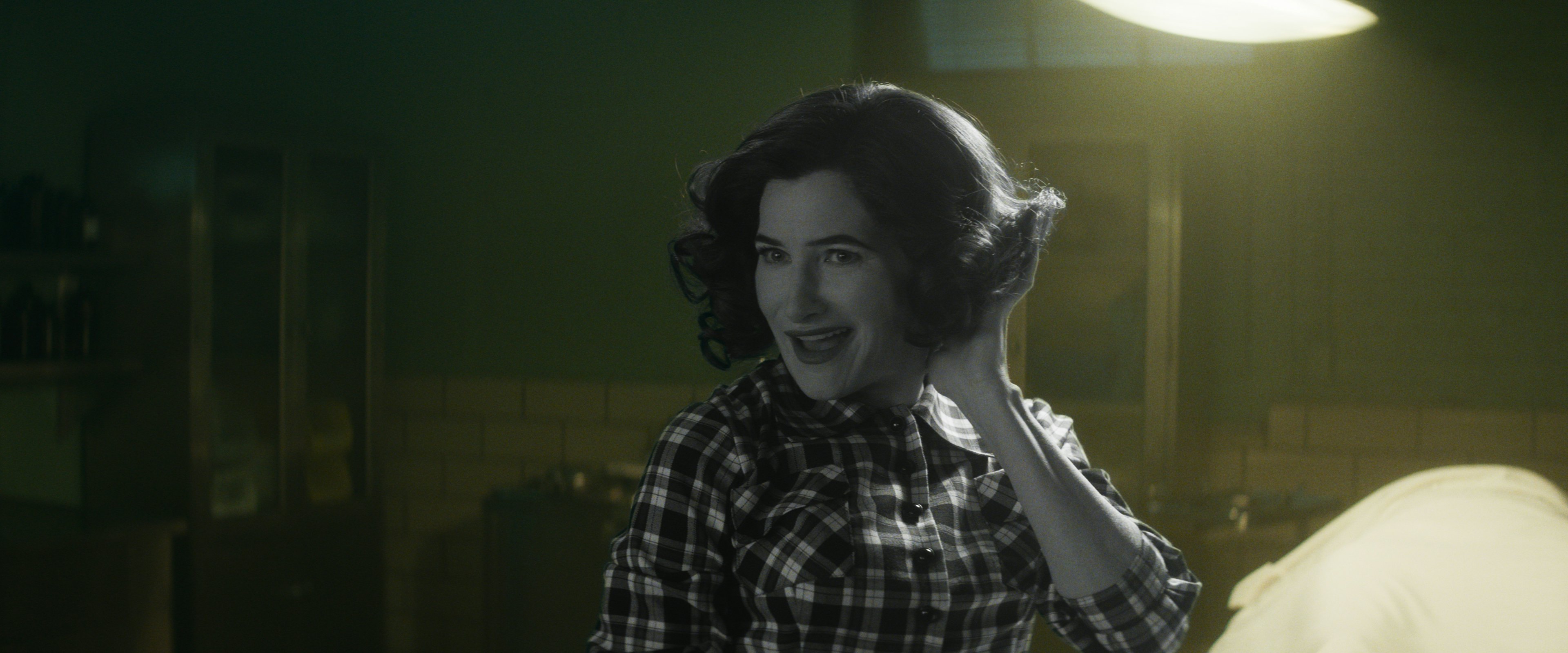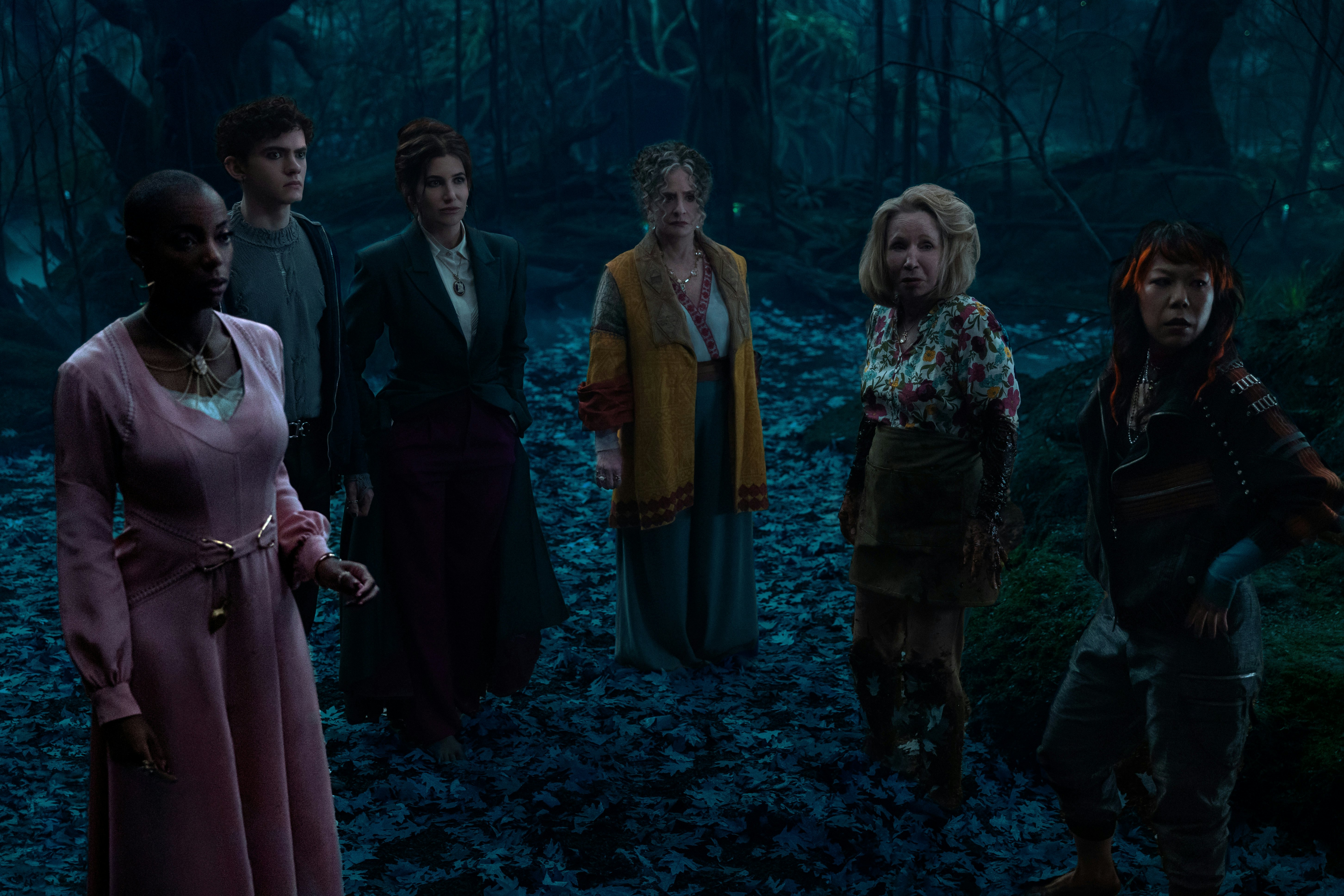
When Marvel announced a spinoff focusing on Agatha Harkness, the “nosy neighbor”-turned-wicked-witch from WandaVision, many fans were skeptical. “The only reason she has a series is because of that stupid song that was trending on social media,” one tweet reads. There is some merit to the criticism: “Agatha All Along,” written by Frozen songwriters Robert Lopez and Kristen Anderson-Lopez, did become a popular meme for a few weeks in 2021.
But one earworm does not make a spinoff. Agatha All Along, the final name of the show after a long string of fakeout titles, doesn’t have the same status as other Marvel series. It isn’t the setup for a big hero or the prologue to a future movie. It has to prove it is worthy of its own existence.
Thankfully, Agatha All Along sees this as an asset, not a liability. It’s a campy, frivolous romp that balances WandaVision’s stylization with a mystical, episodic journey. But its low-stakes conflict challenges how we see the MCU as a whole: outside of the constant Easter eggs and inter-connectivity, is there room for a show that’s just fun and exciting?

Last we saw Agatha, she was the only member of Westview still under Wanda’s spell, living a TV-tinged delusion. But in the three years that have passed since, that spell is shifted. Wanda is no longer the spunky nosy neighbor — instead, she’s a steely Westview detective investigating the death of a Jane Doe. It’s a pitch-perfect parody somewhere between True Detective and Mare of Easttown, but it’s only as real as Wanda’s take on I Love Lucy or Full House.
But while the show begins with the same technique as its predecessor — including a hilariously on-the-mark title sequence — it doesn’t stay there. Through the help of Teen (Joe Locke, whose mysterious character really is just called Teen), Agatha emerges into the real world fully nude and looking to reclaim her power, even if it means teaming with a makeshift coven of witches including Rio Vidal (Aubrey Plaza), with whom she shares some mysterious history.
As the witches (and also Teen) venture down the Witches’ Road, we learn the series’ new format: with every episode, we see one trial of the Road, each focused on a different member of the coven. For example, one episode sees Jennifer Kale (Sasheer Zamata) tested in a Nancy Meyers hellscape of coastal grandma aesthetics and gorgeous open shelving. (In case you were wondering: in a pinch, a farmhouse sink can double as a cauldron.) Threaded throughout these trial-of-the-week adventures is the walking mystery that is Teen. He’s physically incapable of telling Agatha who he is, but his appearance and the disappearance of a lost figure from Agatha’s past seem too coincidental to ignore.

Agatha All Along is fun, but it’s also decidedly small. There are scant references to the events of WandaVision and even Doctor Strange in the Multiverse of Madness, but it’s fully Agatha’s story. She’s on a quest to get her powers back, and she’ll do what it takes to get that. However, it’s not a high-stakes show. Every witch Agatha recruits is in it for her own gain, not to save the world. Oddly, this combination of low-stakes conflicts with rich, colorful characters makes Agatha All Along the most relatable Marvel story in years. As magically gifted as they are, the characters feel like humans, not heroes. Because we first meet them just living their life, we can truly understand their motivations, even if those motivations are to gain untold magical powers.
Maybe that’s the appeal of Agatha: It’s all a little frivolous. There are no scene-long meditations on grief and trauma. The trials are deadly, but they’re also incredibly silly. Miraculously, the show manages to create a balance between its serious moments and funny moments without having to resort to breaking the fourth wall or undermining the earnest tone with a quip. Instead, we’re watching a former villain do what she does best: scheme and quip and solve puzzles.
Agatha All Along won’t change everything you know about the Avengers. It doesn’t include references to The Fantastic Four. But it shouldn’t need to. This is a spinoff not only from WandaVision but from the greater MCU, a branch from its Sacred Timeline that is allowed to live in its own world, be that Westview or the Witches’ Road. It invites you to leave your decade of MCU baggage at the door, put down the homework, and travel down the Road. And after MCU’s recent past, that invitation is far too tempting to deny.







